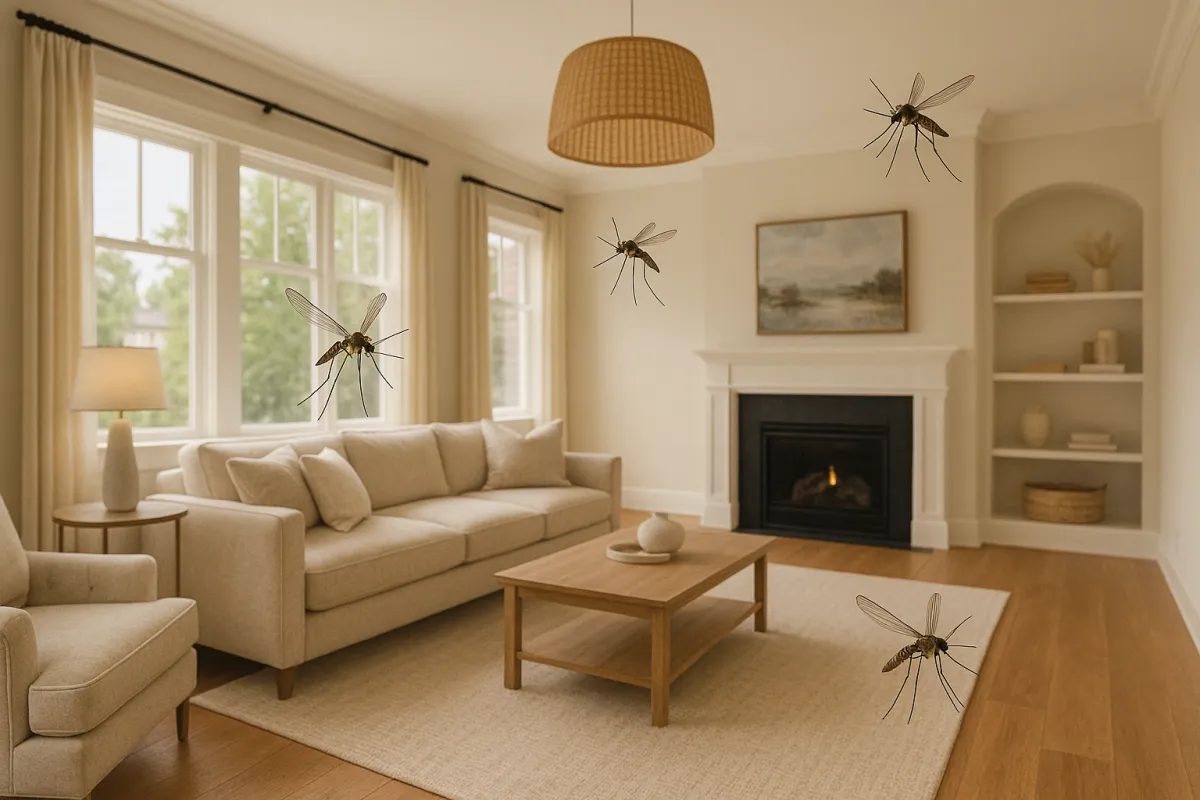
Why DIY Pest Control Doesn’t Work Long-Term in the PNW
Why DIY Pest Control Fails in the Pacific Northwest (And What Actually Works)
The Pacific Northwest (PNW) is known for its lush greenery, mild temperatures, and—unfortunately—a thriving pest population. With consistent moisture, dense vegetation, and temperate winters, our region creates the perfect environment for pests to breed and survive year-round. Homeowners across Tacoma and surrounding areas often turn to DIY pest control solutions as a first line of defense. But while sprays, traps, and over-the-counter treatments may seem like a quick fix, they rarely address the root of the problem—and often end up costing more in the long run.
Here’s why DIY pest control isn’t built to last in the PNW, and what you can do instead to keep your home protected.
1. The PNW Climate Is Built for Pests
With regular rainfall, dense foliage, and high humidity levels, the Pacific Northwest provides an ideal breeding ground for a wide variety of pests. From carpenter ants and termites to rodents, spiders, and moisture-loving insects like silverfish and earwigs, the challenges here are climate-specific.
Why DIY falls short:
Most store-bought products are generalized and not tailored for the species and environmental conditions unique to our region. Treatments that work in dry, arid climates may not work here at all—especially in crawl spaces, basements, and areas with persistent dampness.

2. DIY Treats the Symptom, Not the Source
A common DIY approach is to spray visible pests, lay out traps, or use ultrasonic devices. While this might kill a few ants or catch a mouse, it does nothing to address the source of the infestation—such as hidden nests, entry points, or underlying moisture issues.
Why DIY falls short:
Ants and rodents, for example, often have satellite colonies or secondary nests hidden deep in wall voids or crawl spaces. Killing the foragers you see won’t stop the queen from reproducing or prevent new waves of invaders from returning.
3. Misidentifying the Pest Can Make the Problem Worse
All ants aren’t the same. All rodents aren’t the same. Effective pest control begins with correct identification—knowing exactly what species you’re dealing with and understanding its behavior, nesting habits, and vulnerabilities.
Why DIY falls short:
A treatment plan that works for odorous house ants won’t be effective against carpenter ants. Using the wrong bait, repellent, or exclusion strategy could drive the pests deeper into your home—or cause them to fragment into multiple colonies, worsening the problem.

4. Most DIY Products Are Short-Term Solutions
The sprays, powders, and traps available at hardware stores are designed for short-term effectiveness and are typically low in potency to comply with safety regulations.
Why DIY falls short:
They may offer temporary relief, but these treatments wear off quickly or fail to reach the nesting sites entirely. Without reapplication and a consistent plan, pests almost always return.
Professional-grade treatments used by licensed pest control technicians are formulated for longer-lasting results and can be safely applied in targeted areas that disrupt the pest lifecycle.
5. DIY Ignores Structural and Environmental Risks
Pests don’t just show up randomly—they’re drawn by something. Excess moisture, decaying wood, cracks in siding, uncovered vents, and overgrown landscaping all serve as invitations.
Why DIY falls short:
Store-bought solutions don’t come with inspections. You might kill some ants but miss the water leak in your crawl space that’s attracting them. You might lay traps for rats but fail to notice the ivy growing into your attic vents.
A professional inspection identifies not only the pest but the conditions making your home attractive to them, allowing you to fix the environment and not just treat the symptom.

6. DIY Pest Control Can Lead to Health and Safety Hazards
Improper use of pesticides, mixing incompatible chemicals, or overusing sprays indoors can expose you, your family, and pets to harmful toxins. Worse, some DIY efforts like sealing off vents or blocking entry points without understanding airflow can backfire.
Why DIY falls short:
Licensed pest control companies are trained in Integrated Pest Management (IPM), a science-based approach that minimizes health risks while effectively managing pest populations. They use targeted applications, eco-friendly methods when possible, and always comply with state safety regulations.
7. It’s More Expensive in the Long Run
DIY pest control often becomes a game of whack-a-mole—repeatedly treating surface-level issues without addressing the root cause. Each time the pests return, you spend more money, time, and energy repeating the cycle.
Why DIY falls short:
Professional services may seem like a bigger upfront investment, but they offer long-term solutions that reduce the need for constant re-treatment. Most pest control plans also include follow-up visits, guarantees, and access to expert advice.

So, What Should You Do Instead?
✅ Schedule a Professional Inspection
Let a licensed pest expert assess your home, identify vulnerabilities, and recommend a strategy tailored to your specific environment and pest risk.
✅ Use Integrated Pest Management (IPM)
This method focuses on prevention, monitoring, and minimal chemical use. It addresses both the pests and the conditions that attract them.
✅ Implement a Seasonal Pest Plan
In the PNW, pests are seasonal. Ants surge in the spring, rodents seek shelter in the fall, and moisture-loving pests thrive all year. A year-round plan ensures your home stays protected no matter the season.
✅ Choose a Local Provider Who Understands the Region
All-Shield Pest Control is based right here in the Pacific Northwest. We understand the unique pressures homeowners face in Tacoma and beyond—and we’ve built our methods around that knowledge.
Final Thoughts
DIY pest control may offer a moment of relief, but it rarely delivers long-term peace of mind—especially in the pest-rich environment of the Pacific Northwest. For lasting results, expert insight, and real protection, trust a team that knows the region and can customize a solution for your home.
Need help?
Contact All-Shield Pest Control today for a free inspection or consultation. Let us show you what professional, local pest protection really looks like.